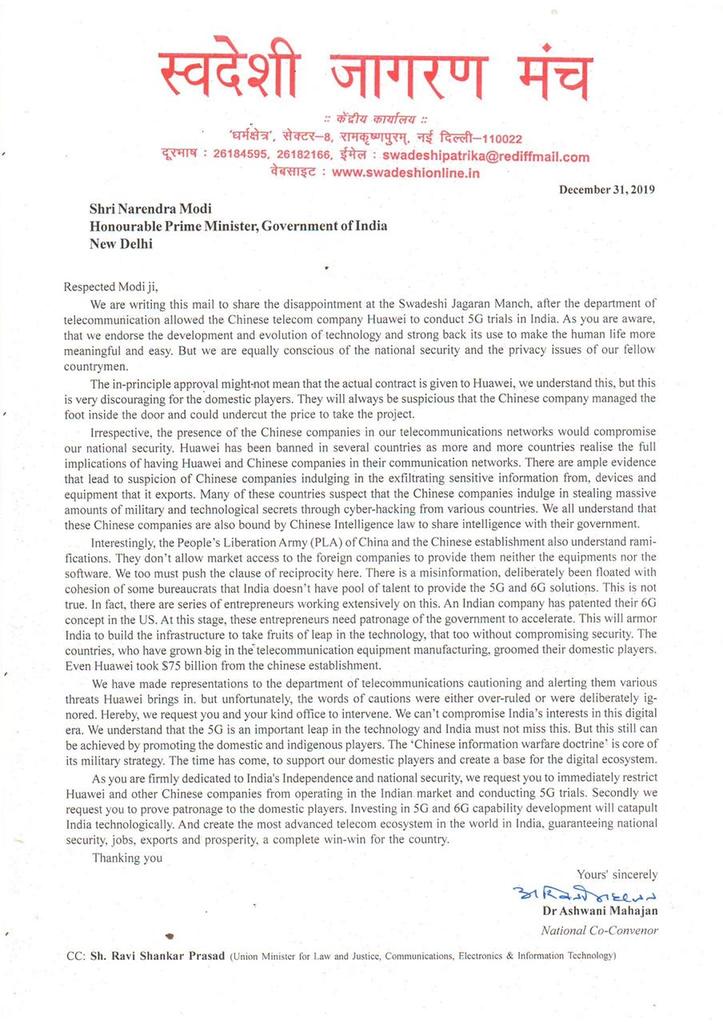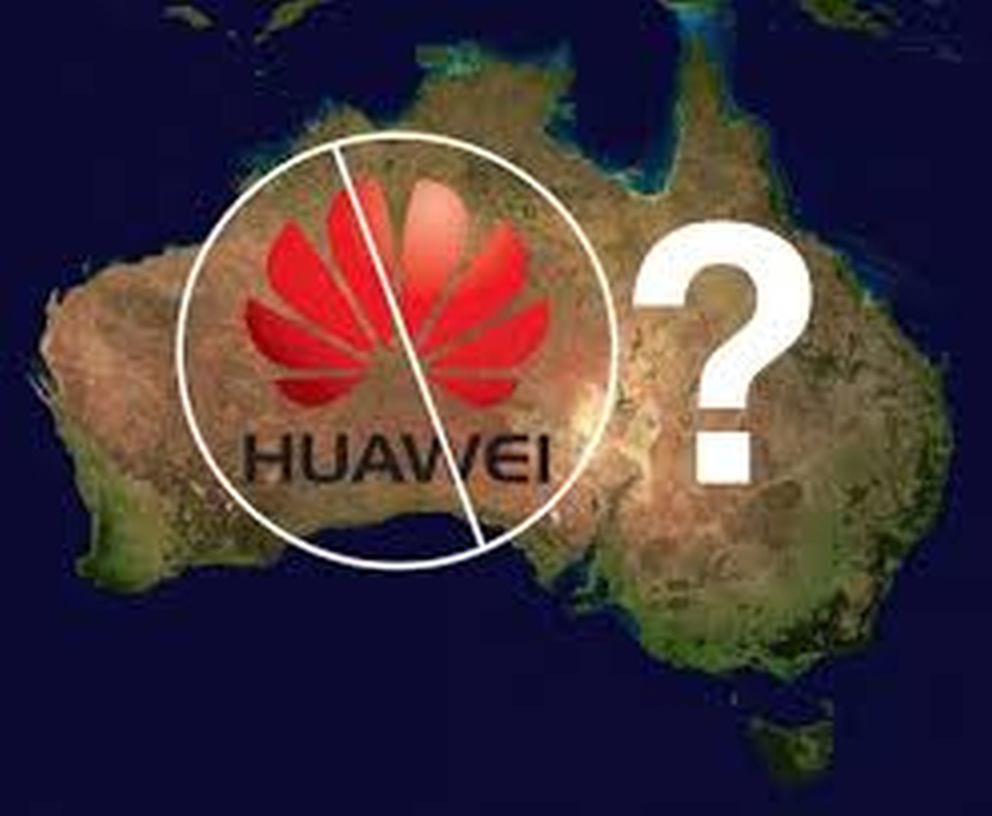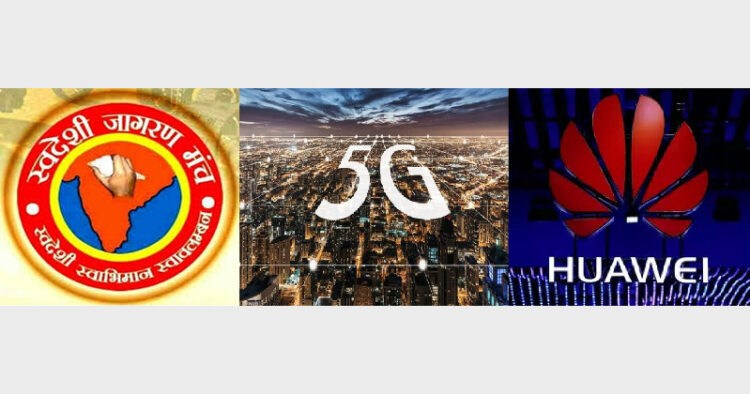
Many countries the world over including the US have expressed their apprehensions over Chinese mobile companies trying to steal government and customers data. Apart from the US, Australia, New Zealand, Japan, Taiwan have decided to ban and phase out the company’s products within their mobile networks. Several European countries including Denmark, Sweden and the Netherlands have debated and taken steps to limit the participation of Chinese companies like Huawei and ZTE in their countries. In fact, Australian government officials in September 2019 had advised India to ban Huawei from supplying parts for a roll-out of a high-speed telecommunications network.
In line with international apprehensions, Swadeshi Jagran Manch (SJM) has written to PM Modi expressing its displeasure at Department of Telecommnication (DoT)’s decisions to allow Huawei to conduct 5G trials in India. In its letter to the PM, SJM says that keeping national security and the privacy issues of fellow countrymen in mind and given the fact that there are ‘ample evidence that lead to suspicion of Chinese companies indulging in the exfiltrating sensitive information from, devices and equipment that it exports’, Huawei must be stopped from the 5G trials.
SJM’s letter also says that Chinese companies are also bound by Chinese Intelligence Law to share intelligence with their government. However, the People’s Liberation Army (PTA) of China and the Chinese establishment understand such ramifications and hence they don’t allow Chinese market access to foreign companies and provide them neither the equipment nor the software. “We too must push the clause of reciprocity here”, says the letter giving a legitimate reason to stop Huawei in India.
Talking in favor of Indian Companies, SJM says that allowing foreign players will be very discouraging for the domestic players. It alleges that some bureaucrats in cohesion with these foreign companies are involved in deliberately floating false information that India doesn’t have pool of talent to provide the 5G and 6G solutions. “There are series of entrepreneurs working extensively on this. An Indian company has patented their 6G concept in the US. At this stage, these entrepreneurs need patronage of the government to accelerate. This will armor India to build the infrastructure to take fruits of leap in the technology, that too without compromising security.”, says SJM.
SJM alleges that its apprehensions were brushed aside and deliberately ignored by the DoT despite its representation cautioning and alerting them about threats from Huawei. The ‘Chinese information warfare doctrine’ is core of its military strategy and we should be aware of this. 5G is an important leap in the technology and India must not miss this but this still can be achieved by promoting domestic and indigenous players, says the SJM.
The SJM’s letter signed by its National Co-Convener Dr Ashwani Mahajan, urges the PM to immediately restrict Huawei and other Chinese companies from operating in the Indian market and conducting 5G trials. Being firmly dedicated to India’s Independence and national security it requests PM Modi to guarantee provide patronage for domestic players and ensure national security, jobs, exports and prosperity for the country.

SJM’s letter to PM over banning of Huawei in 5G trials in India
Shenanigans of Chinese mobile companies
Huawei Technologies is a China-based company which is one one the world’s largest providers of telecommunications equipment, networking gear, smartphones and more. Numerous countries have alleged that the company’s products may purposely contain security holes that China’s government could use for spying purposes. Many countries have also alleged that Huawei steals intellectual property from foreign technology companies.
U.S. Department of Justice (DOJ) on January 28, 2019, charged Huawei with bank fraud and stealing trade secrets. In a 13-count indictment DOJ charged Huawei, its chief financial officer, and two affiliated firms with a laundry list of crimes including conspiracy, money laundering, bank and wire fraud, flouting U.S. sanctions on Iran, and obstruction of justice. Though Huawei denied these charges, apprehensions were not completely addressed by the company say US officials.
Numerous countries and companies worldwide are considering 5G wireless network rollouts. Given the US DOJ case against Huawei, countries worldwide are trying to decide if or how to permit Huawei to participate in 5G wireless network projects.
Action against Huawei in various countries

Charges of espionage, stealing information, illegally sourcing data against Huawei are not without antecedents. In 2003, Cisco sued Huawei alleging that the China-based company stole Cisco source code to build Huawei network routers. Huawei denied those claims, and Cisco ultimately dropped the suit as long as Huawei modified its product line, discontinuing some products. Many countries have acted against Huawei and a small list is below:
– Czech cyber-security agency warned about the risks Huawei’s equipment pose to the -nation’s critical infrastructure.
– In February 2019, Danish authorities expelled two Huawei staff after an inspection at the company’s Copenhagen office showed that they failed to comply with laws covering residence and work permits.
– According to the head of the French cybersecurity agency, Huawei won’t be allowed to access French users’ location data even if the Chinese company’s equipment is used in the rollout of France’s 5G network.
– The German government in January 2019 said that it was considering banning Huawei from providing 5G equipment in the country saying security concerns are of “high relevance.”
– In November 2018, New Zealand’s top intelligence agency banned Huawei from supplying equipment for the country’s first 5G mobile network.
– Poland excluded Huawei from its future 5G network in favor of European players following the arrest of an employee from the Chinese telecom company on suspicion of spying.
Apart from these charges, it is said that Huawei has secretly helped North Korea build and maintain its commercial wireless network. Hence, those concerned about national security and misuse of data shared on mobile networks, question the intent of Chinese companies.














Comments